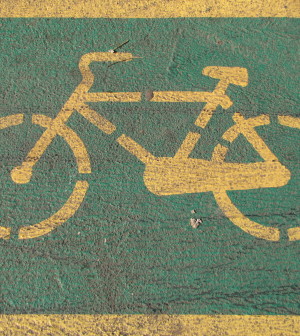- Could Your Grocery Store Meat Be Causing Recurring UTIs?
- Are You Making This Expensive Thermostat Error This Winter?
- Recognizing the Signs of Hypothyroidism
- 10 Strategies to Overcome Insomnia
- Could Artificial Sweeteners Be Aging the Brain Faster?
- Techniques for Soothing Your Nervous System
- Does the Water in Your House Smell Funny? Here’s Why
- Can a Daily Dose of Apple Cider Vinegar Actually Aid Weight Loss?
- 6 Health Beverages That Can Actually Spike Your Blood Sugar
- Treatment Options for Social Anxiety Disorder
60,000 U.S. Kids Treated for Accidental Medicine Poisoning a Year

Nearly 60,000 children in the United States are accidentally poisoned by medicines each year, a new report says.
That’s the equivalent of four busloads of children — or one every nine minutes — arriving at emergency departments every day because of medicine-related poisoning, according to Safe Kids Worldwide.
And nearly every minute each day a poison control center receives a call about a child who got into medicines, the report notes.
“We want parents and caregivers to remember that the first line of defense in preventing medicine poisoning is the family,” Kate Carr, president and CEO of Safe Kids Worldwide, said in a news release from the group.
Americans fill nearly three times as many prescriptions as they did in 1980 and spend five times as much on over-the-counter drugs, according to the report. With so many medications on hand, parents and other adults need to be especially vigilant in protecting children from poisoning, Carr said.
“The good news is that education efforts are working,” Carr added.
“Since Safe Kids and industry and government partners started getting the word out to parents about the importance of keeping kids safe around medicine, the number of ER visits has steadily declined. But there are still too many kids getting into medicine, so education needs to continue to be a priority for all,” she added.
Toddlers are at greatest risk for medicine poisoning. Kids aged 1 to 2 years account for 70 percent of ER visits for medicine poisoning, the report said. Parents and caregivers of toddlers need to be sure to store medicine where toddlers cannot reach them, Carr said.
Kids find medicines in all sorts of places — on the ground, in purses, in diaper bags, on counters and in refrigerators, the report says. They also find them in accessible cabinets, and in daily medicine boxes used by adults to make it easier to take their pills.
Grandparents may need safety reminders, the report suggests. In an analysis of ER data on children poisoned by medicines, the drugs belonged to grandparents in 48 percent of cases and to parents in 38 percent of cases.
“Look around your home, and in your purses, to make sure all medicine is out of reach of children,” Carr explained.
She also suggested saving the Poison Help Number into your phone: 1-800-222-1222. “It’s free, it’s available 24/7, and it will put you in touch directly with experts who can help you with an emergency or just with a simple question,” she said.
Other safety measures include writing clear instructions for caregivers about your child’s medicine, and only using the dosing device that comes with the medicine, Safe Kids Worldwide said.
More information
The U.S. Centers for Disease Control and Prevention offers poisoning prevention tips.
Source: HealthDay
Copyright © 2026 HealthDay. All rights reserved.










